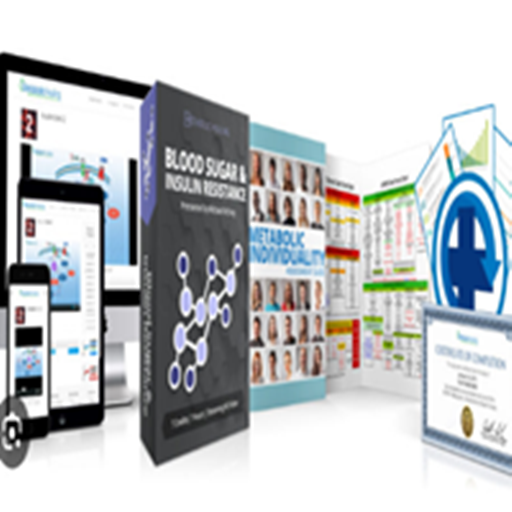Contents
hide
Diabetes and Sugar: Introduction
Does sugar consumption directly lead to diabetes? While excessive sugar intake can have negative health effects, the connection between sugar and diabetes is more complex. Here, we explore the facts behind sugar, its effects, and ways to maintain balanced health.
Understanding the Relationship Between Sugar and Diabetes
- Sugar Consumption Alone Isn’t the Sole Cause
Although consuming excess sugar is harmful, diabetes isn’t solely caused by sugar intake. Type 2 diabetes primarily results from a combination of factors like genetics, lifestyle choices, and weight gain.
Key Factors Connecting Sugar and Diabetes
- Obesity and Weight Gain Risk
- Consuming too much sugar often leads to weight gain, particularly visceral fat around the waist.
- Obesity is a significant risk factor for Type 2 diabetes, making weight management crucial.
- Tip: Opt for a balanced diet and limit sugary beverages to control weight.

2-Insulin Resistance and Sugar Overload
- Regular consumption of high-sugar foods can result in increased insulin resistance.
- Insulin resistance means cells cannot effectively absorb glucose, raising blood sugar levels and increasing the risk of diabetes.
- Studies by the American Diabetes Association emphasize moderating sugar intake.

3-Spiking Blood Glucose Levels
- Eating sugar causes blood glucose to spike, prompting the body to release more insulin.
- Frequent consumption of sugary foods keeps blood sugar levels consistently high, heightening diabetes risks over time.
- Advice: Incorporate whole grains and high-fiber foods to stabilize blood sugar.

4-Hidden Sugars in Processed Foods
- Processed foods like sauces, snacks, and bread often contain hidden sugars.
- Hidden sugars raise blood glucose levels even without tasting obviously sweet.
- Be mindful of food labels and limit processed food consumption.
5-The Importance of a Balanced Diet
- A balanced diet reduces diabetes risk and manages blood sugar.
- Focus on foods high in fiber, protein, whole grains, and healthy fats.
- Fiber-rich meals help prevent rapid spikes in blood sugar, improving long-term health.

How to Manage Sugar Intake for Diabetes Prevention
- Monitor Sugar Consumption
Track sugar intake and reduce added sugars. Avoid sugary drinks and opt for water or unsweetened beverages. - Regular Exercise
Physical activity helps control weight and improves insulin sensitivity. - Balanced Nutrition
Ensure meals contain sufficient protein and healthy fats alongside carbohydrates to avoid sharp sugar spikes.
Additional Tips for Diabetes Management and Prevention
- Check Labels for Hidden Sugars: Even savory foods may have high sugar content.
- Stay Active: Regular exercise helps with weight management and insulin response.
- Limit Processed Foods: Choose fresh, whole foods when possible.
FAQs on Diabetes and Sugar
- Does eating sugar directly cause diabetes?
No, it contributes to risk factors but isn’t the sole cause. - What role does obesity play in diabetes?
Obesity is a key risk factor for Type 2 diabetes. - What is insulin resistance?
When cells resist insulin, leading to elevated blood sugar. - Can sugar in processed foods be harmful?
Yes, hidden sugars in processed foods contribute to higher glucose levels. - How can a balanced diet help with diabetes?
A balanced diet helps regulate blood sugar levels and prevents spikes. - Are sugary drinks more harmful?
Yes, they lead to rapid spikes in blood glucose. - Does fiber help manage diabetes?
Yes, fiber slows sugar absorption, maintaining stable glucose. - Is genetics a factor in diabetes?
Yes, genetics play a significant role in diabetes risk. - What foods have hidden sugars?
Breads, sauces, and some snacks contain hidden sugars. - How does physical activity impact diabetes?
Exercise improves insulin sensitivity and reduces diabetes risk. - Can Type 1 diabetes be prevented by diet?
No, Type 1 diabetes is autoimmune and unrelated to sugar intake. - Should I avoid all carbs?
No, focus on healthy, complex carbs like whole grains. - What are common symptoms of diabetes?
Thirst, frequent urination, fatigue, and blurred vision. - How does sugar impact Type 2 diabetes?
Excess sugar intake can worsen insulin resistance. - Are artificial sweeteners safe?
They can be a good alternative, but moderation is key. - Does stress influence diabetes?
Yes, stress can raise blood sugar and impact management. - What foods lower blood sugar?
Leafy greens, whole grains, and fiber-rich foods help. - How often should blood sugar be monitored?
As advised by your healthcare provider. - Can children develop Type 2 diabetes?
Yes, due to poor diet, obesity, and inactivity. - Does cutting sugar prevent diabetes?
It reduces the risk factors but does not guarantee prevention.
Also Read: Boost Your Immunity with These Top Antibiotic Foods
